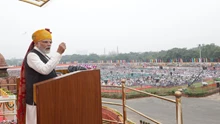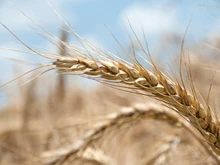
In response to the growing concerns over inequality in the post-Covid world, the Confederation of NGOs of Rural India (CNRI) has put forth a groundbreaking proposal to establish the World Cooperative Economic Forum. This global forum aims to democratize the global value chain for innovative food systems and foster social and solidarity economy principles on a worldwide scale.
Headquartered in New Delhi, CNRI is a national network of non-governmental organizations and people's organizations dedicated to promoting development effectiveness and democratic governance in India. Speaking at the United Nations' Economic and Social Council (ECOSOC) meeting, CNRI's Secretary General, Binod Anand, highlighted the historical roots of the concept of social and solidarity economy in India.
Anand encapsulated the essence of the proposed forum's purpose by suggesting that they speak together, have their thoughts united, be of one mind, share a common place and assembly, and have a common mind and thought. He further emphasized the importance of having the same resolve and being of one accord to live in harmony and agreement, as stated in the Rig Veda.
Anand expressed his optimism about India becoming the home of the cooperative movement and asserted that the creation of the World Cooperative Economic Forum would play a pivotal role in advancing social and solidarity economy principles globally.
Furthermore, Anand advocated for the exploration of SDG (Sustainable Development Goals) bonds as a novel source of capital to mobilize essential resources for humanitarian projects in the post-Covid world. He stressed the urgency to address rising inequality, which has raised doubts about the successful implementation of the UN's Sustainable Development Goals.
During his address, Anand cited two successful cases from India that exemplify the integration of sustainable development principles. Firstly, he mentioned Dhanuka AgriTech's sustainable agriculture initiative, which honors farmers and encourages them to adopt sustainable practices to contribute to national food security.
Secondly, Anand highlighted the Small Farmers Agribusiness Consortium, a government initiative that plays a significant role in supporting farmers to embrace sustainable practices. The initiative promotes Smart Agriculture and ensures a democratic value chain for farmer groups and cooperatives, impacting approximately 10 million farmers with limited resources.
Anand underscored CNRI's commitment to implementing structural reforms in the delivery mechanism to ensure a brighter future for humanity. The recognition of CNRI's work in rural India with special consultative status by the United Nations signifies the organization's dedication and impact in the field.









